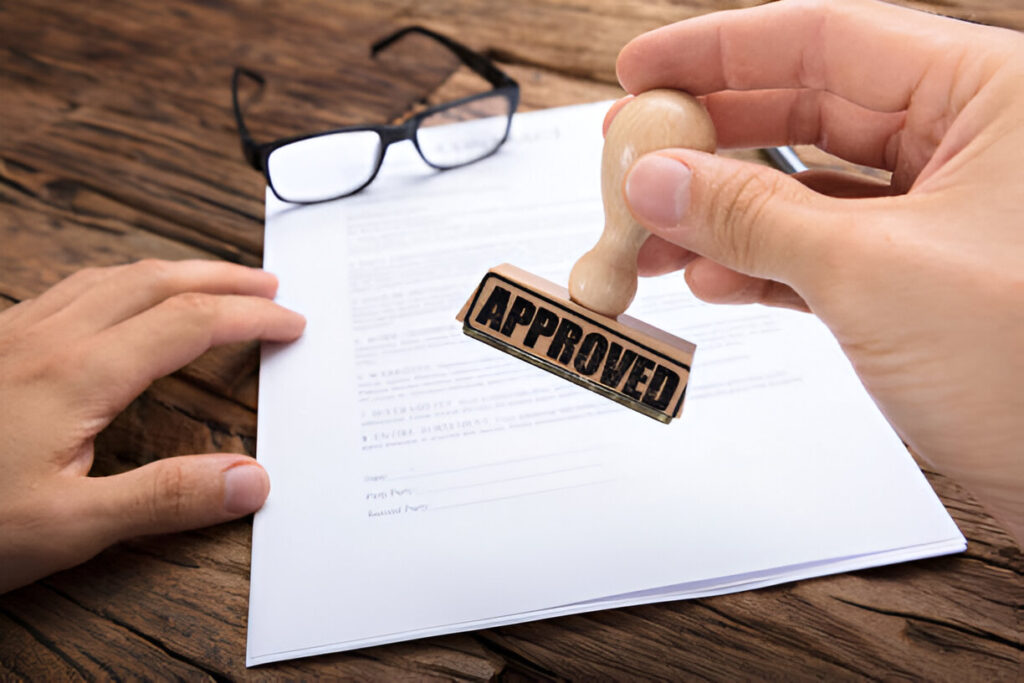If you’re planning to work or further your education in Spain, it’s essential to homologate a degree in Spain. This process ensures that your degree is officially recognized in the country, making it easier to pursue career opportunities or continue your academic journey. In this guide, we’ll break down what you need to know about the homologation process, why it matters, and how it works for both EU and non-EU degree holders.
What Does Homologate a Degree in Spain Mean?
If you’re thinking about living or working in Spain and you have a degree from another country, you may have heard the term “homologate a degree.” But what exactly does it mean, and why is it important? Let’s break it down.
Making Your Foreign Degree Official in Spain
Homologation is the process of getting your foreign degree recognized as equal to a Spanish degree. In simpler terms, it’s like translating your qualifications into something Spain’s education system can understand. This process ensures that your academic achievements abroad meet the standards required in Spain. It’s essential if you want to pursue certain professions or continue studying in the country.
Why Homologation is Important for Certain Jobs
Not every job in Spain will ask for homologation, but for regulated professions (like doctors, engineers, or lawyers), it’s a must. These fields have strict educational requirements, and Spain wants to make sure your degree is on par with what’s expected locally. Without homologating your degree, you might face hurdles in securing these kinds of roles or furthering your career.
Process of Homologating Your Degree
Homologating your degree isn’t as simple as submitting a form and calling it a day. It involves collecting various documents, translating them into Spanish, and submitting them to the Ministry of Education or the appropriate authority. They’ll evaluate your degree based on Spain’s educational standards. If your degree aligns with a similar program in Spain, you’re good to go. If not, they might ask you to take additional courses or tests to fill in any gaps.
How Long Does It Take?
The process can take anywhere from several months to over a year. It’s a bit like getting a visa – there’s paperwork, waiting, and sometimes a few extra steps along the way. If you’re planning on moving to Spain for work or study, it’s a good idea to start this process early to avoid delays.
Why Is It Important to Have Your Degree Recognized in Spain?
If you’re planning to work or further your studies in Spain, having your degree recognized (or homologated) is an essential step. But why is it so important? Let’s look at the key reasons that make homologating your degree in Spain a crucial part of your journey.

Access to Regulated Professions
In Spain, certain professions are strictly regulated, meaning you need to meet specific educational and professional standards to work in these fields. Jobs like teaching, law, medicine, and engineering fall under this category. Without having your degree recognized, you won’t be allowed to practice in these professions, even if you have years of experience elsewhere. Homologating your degree ensures that you meet the Spanish requirements and can legally work in these roles.
Continuing Education and Pursuing Higher Studies
If you’re planning on continuing your education in Spain—whether it’s getting a master’s degree or pursuing a doctorate—having your foreign degree recognized is often a requirement. Spanish universities need to ensure that your previous qualifications meet their standards before accepting you into advanced programs. Without this recognition, your application for further study could be rejected, limiting your academic opportunities.
Competitive Edge in the Job Market
Even for non-regulated professions, having your degree recognized can give you a significant advantage. It shows employers that your qualifications have been verified and meet the local standards. In a competitive job market, where companies may prefer candidates with local qualifications, this can make you stand out from other applicants who haven’t gone through the homologation process.
Avoiding Legal Issues
In some professions, working without the proper recognition of your degree can lead to legal trouble. If you’re found practicing in a regulated field without homologation, you could face penalties, including fines or even the loss of your job. Ensuring your degree is recognized protects you from these legal complications and gives you peace of mind that you’re operating within the law.
Personal and Professional Growth
Homologating your degree is more than just a legal requirement—it’s also a step towards professional growth. By having your qualifications recognized in Spain, you open doors to a wider range of opportunities, whether that’s climbing the career ladder, switching fields, or gaining new skills. It’s an investment in your future that can pay off in numerous ways, both personally and professionally.
How Long Does It Take to Homologate a Degree?
Homologate a degree in Spain is a key step if you’re looking to work or continue your studies with a foreign qualification. If you’ve earned your degree abroad and need to get it recognized, you might be wondering how long this process takes. Well, let’s break it down for you.
What Is Degree Homologation?
Before diving into the timelines, let’s clarify what homologation actually means. It’s the process of validating your foreign qualification so that it’s considered equivalent to a Spanish degree. This step is essential if you’re planning to work in regulated professions like law, medicine, or engineering, or if you want to pursue further education in Spain.
Factors That Affect the Homologation Timeline
The time it takes to homologate your degree can vary, and several factors influence this. One major factor is the type of degree you’re homologating. For example, professional degrees like law, medicine, or architecture might take longer due to the stricter evaluation process involved. Additionally, the institution where you earned your degree and the country of issuance play a role. Degrees from some countries or institutions may be more straightforward to homologate, while others may require a deeper review.
Typical Timeframe for Homologation
In general, the homologation process can take anywhere from 6 months to 2 years. While this may seem like a broad range, the majority of cases are processed within one year. However, it’s important to keep in mind that each case is unique. Some applications may experience delays due to missing documents, incorrect submissions, or high demand in certain fields. To avoid unnecessary delays, make sure to submit all required paperwork correctly the first time.
Speeding Up the Process
While there’s no magic way to significantly speed up the homologation process, being well-prepared can help. First, ensure that all your documents are correctly translated into Spanish by a certified translator. Additionally, double-check that your application is complete and that you’ve included all necessary certifications and supporting documentation. These small steps can prevent back-and-forth requests that may slow things down.
Is It Worth the Wait?
The homologation process may seem lengthy, but it’s a crucial step for many professionals who want to work in Spain. Without it, you may not be able to pursue your desired career, especially in regulated professions. So, even though it can take some time, it’s usually worth it in the long run to ensure you can fully integrate into the Spanish job market.
How to Validate Your Degree in the USA vs. Spain?
If you’ve earned a degree abroad and are planning to work or continue studying in either the USA or Spain, you’ll need to go through the degree validation process. Although both countries require this step, the process and requirements are quite different. Let’s compare how you can validate your degree in both the USA and Spain.
What Does Degree Validation Mean?
In both the USA and Spain, validating a degree means getting your foreign qualification recognized as equivalent to a local one. It allows you to access job opportunities, continue higher education, or practice in regulated professions. While the goal is similar, the steps and complexities vary in each country.
Degree Validation in the USA
In the USA, degree validation is decentralized. This means there’s no single authority handling the process. Instead, different institutions and organizations are responsible depending on your situation.
- Credential Evaluation Services: To validate your degree, you’ll need to go through a credential evaluation service. These are private companies that assess your academic qualifications and determine their equivalency in the US education system. Well-known organizations include WES (World Education Services) and NACES (National Association of Credential Evaluation Services).
- Regulated Professions: If you’re planning to work in a regulated profession, such as law, medicine, or engineering, you’ll also need approval from a professional board. This is separate from the general degree validation process. For example, doctors might need to pass additional exams (like USMLE for medical professionals).
- Timeframe: The timeline for validating a degree in the USA depends on the organization you work with and the specific field you’re entering. On average, the process can take a few weeks to a few months.
- Cost: Expect to pay between $100 and $300 for credential evaluation services, but professional licensing fees may increase the total cost if you’re entering a regulated profession.
Degree Validation in Spain
Spain, on the other hand, follows a more centralized process for degree validation, which is known as homologación.
- Ministry of Education: In Spain, degree validation is handled by the Ministry of Education. You’ll need to submit an application through their online portal or at a government office, along with the required documents, which must be translated into Spanish by a certified translator.
- Regulated Professions: Like in the USA, certain professions require additional approval from a professional board. For example, lawyers or architects may need to pass specific exams or take courses before they can practice.
- Timeframe: The validation process in Spain typically takes between 6 months and 2 years, depending on the complexity of the degree and the profession. While this is longer than the US process, it ensures that foreign degrees meet Spanish standards.
- Cost: The process in Spain can cost between €50 and €300, depending on the complexity of the degree and the profession you’re entering. If additional exams or coursework are required, this may increase the cost.
Key Differences Between the USA and Spain
- Centralized vs. Decentralized: Spain has a centralized system for degree validation, while the USA leaves it to private organizations and professional boards.
- Timeframes: Spain’s process can take longer, especially for regulated professions. The USA typically has a quicker, more streamlined process.
- Cost: Costs in both countries are somewhat similar for basic credential evaluations, but professional licensing fees and exam costs may add up in both cases.
Which Is Easier?
In general, the USA’s decentralized system might feel quicker, especially for non-regulated professions. However, Spain’s centralized system ensures consistency and thoroughness in evaluating foreign degrees. Your profession, goals, and personal situation will determine which process is more suited to your needs.
In the end, validating your degree is an important step to advance your career in either country, and while the processes are different, both are designed to ensure that your qualifications are properly recognized.
What Documents Are Required for Homologation?
If you’re planning to homologate your degree in Spain, gathering the correct documents is a crucial step in the process. Homologation, or validating your foreign degree, allows you to have your qualifications officially recognized in Spain. While the list of required documents may vary depending on your specific degree and country of origin, there are several key documents that are typically needed.

Application Form
The homologation process starts with an application. You’ll need to complete the official homologation form (Solicitud de Homologación), which can be found on the Ministry of Education’s website. Be sure to fill it out accurately and completely to avoid delays. You can submit the form online or in person at the relevant government office.
Valid Identification
You’ll need to provide proof of identity, such as a valid passport or residency card (Tarjeta de Residencia). Make sure that your identification is current and matches the details on your application. Photocopies of your ID will need to be submitted along with the originals for verification purposes.
Degree Certificate
The most important document in the homologation process is your original degree certificate, which must be officially recognized by the institution where you earned it. You’ll also need a certified copy of the degree for submission. If the degree is in a language other than Spanish, it must be translated by a certified translator.
Academic Transcript
Along with your degree certificate, you’ll need to provide your academic transcript (Certificado Académico), which details the subjects you studied, the grades you received, and the duration of your studies. Like the degree certificate, this document must be translated into Spanish by an official translator if it’s in another language.
Syllabus or Course Content
In some cases, you may be required to submit the syllabus or detailed course descriptions from your studies. This allows the Spanish authorities to compare your educational content with local standards. Having this documentation ready, translated into Spanish, can help prevent delays in the evaluation process.
Certified Translations
Any documents not originally in Spanish must be translated by a certified, sworn translator (traductor jurado). This includes your degree certificate, academic transcript, and syllabus (if applicable). These translations are crucial for ensuring that the Spanish authorities fully understand the content of your documents.
Payment of Fees
Homologation requires payment of administrative fees, which typically range from €50 to €300, depending on the type of degree and the complexity of the process. Keep a copy of the payment receipt as it may be required when submitting your application.
Additional Documents for Regulated Professions
If you are applying for homologation in a regulated profession, such as law, medicine, or engineering, you may be asked for additional documentation. This can include professional licenses, certificates of experience, or proof of passing specific qualifying exams in your home country. Be prepared to provide this information if necessary.
FAQs
How long does it take to homologate a degree in Spain?
It usually takes six months to a year, depending on the complexity of the degree and where it was issued.
Is a homologated degree necessary to work in Spain?
Yes, especially for regulated professions. Without homologation, you might not be eligible for certain jobs or academic programs.
Can I homologate my USA degree in Spain?
Yes, but the process may take longer, and additional documentation may be required compared to EU degrees.
What documents are needed for homologation?
You’ll typically need your diploma, transcripts, and a certified translation of these documents into Spanish.
Can I work while waiting for my degree to be homologated?
You can work in unregulated fields or certain temporary positions, but regulated professions require a homologated degree.
Conclusion
Homologate a degree in Spain is a critical step for anyone planning to work or study in the country. While the process can be time-consuming and requires meticulous attention to detail, the benefits of having your degree officially recognized far outweigh the challenges. By preparing your documents in advance, understanding the timeline, and following the guidelines, you’ll be well on your way to pursuing your professional or academic goals in Spain.

